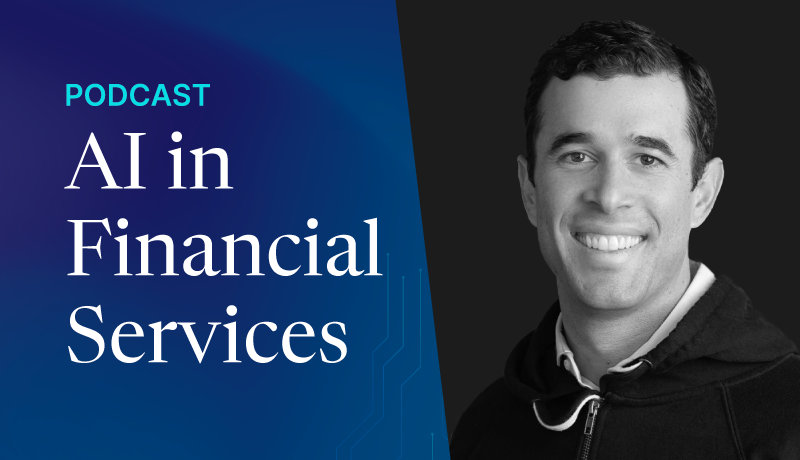By Ben Levi
October 24, 2022
While AI tools need much more data before contracts can write and execute themselves, lawyers can still take advantage of current tools to significantly improve the way they practice law.
Artificial intelligence (AI) has the potential to transform the legal industry. It can make lawyers faster, more accurate, and more data-driven in their practices. However, the transformative power of AI will take time to develop and implement.
As of right now, many companies overhype their current AI capabilities, which are more marketing than substance. Realistically, the legal community should understand that AI remains challenging technology to build and most AI-driven change will be incremental. However, that doesn’t mean AI technology isn’t useful right now. Lawyers can implement technology as it evolves, benefiting from existing solutions while preparing for what comes next.
The best way to think about the use of AI in the legal sphere is to follow the lead of self-driving vehicles. Manufacturers like Tesla gather and leverage immense amounts of data to make steady, incremental improvements. Those advancements have taken us from fully manual vehicles to cars with adaptive cruise control and partial driving automation. The same reliance on data and gradual change will lead to fully autonomous vehicles one day.
The same logic applies to contract automation. Current solutions can help lawyers draft, redline, execute, and search contracts and other legal documents. However, we need an immense amount of data to advance further. Just as we’re a long way from a car that can drive without any human intervention, so are we a long way from contracts that write and execute themselves.
Why AI Struggles in the Legal Industry
The legal industry is particularly challenging for AI tools. Legal writing is nuanced, and the law is complicated. Drafting contracts requires understanding relationships, bargaining power, and applicable law, as well as having sound judgment. Despite the many advances in machine learning (ML) and natural language processing (NLP) over the last decade, there’s simply no algorithm that can do all those things at this point.
Legal AI Needs More Data
AI solutions are built using two tools: algorithms and data. The current algorithms available are fairly well-established and there’s very often little difference between several algorithms for the same use case. As a result, the success of an AI solution heavily depends on the second building block, data.
An algorithm needs to be trained. If it’s trained on a good data set that’s accurate, deep, and voluminous, it will get far better results than if it’s trained on an inaccurate, shallow, and small set of data. This may seem apparent, but getting access to a data set is one of the key challenges in building good AI. Without a good data set, no AI can be successful.
To improve AI, we also need another input: humans. Continuous human oversight and input—“human in the loop” (HITL) technology, as we call it—allows the AI to learn from mistakes, course correct, and produce better and more accurate results as it goes. Again, though, HITL in the legal space needs someone knowledgeable about the law and relevant data set to be helpful. When an experienced legal professional works with an AI tool that relies on a well-trained algorithm, the AI results improve. Getting this process right is hard, highly iterative, and slow.
Following the Same Path as Self-Driving Vehicles
Legal technologies are following a similar path as semi-autonomous vehicles. To begin with, we’re not as close to having fully self-driving cars as some companies and publications might have you believe. When you cut through the marketing hype, here’s the reality of the current state of the technology: The Society of Automotive Engineers has defined six levels of driving automation. Right now, most “self-driving” vehicles are at a Level 3 or below. Several companies are in the process of developing and gathering driving data for Level 4 or 5 vehicles, but there are no autonomous vehicles.
If we apply the 80/20 rule—the final 20% of the software development takes 80% of the time—it’s clear we’re a long way away from a car that drives itself without assistance in all situations. Many companies are gathering data and building better technology, and one day the hype may truly match the reality. Tesla, General Motors, Volkswagen, and others have been collecting data for years and analyzing a seemingly endless number of unique driving situations. They’re laying the groundwork for future technological improvements and ultimately, a paradigm shift in how we operate vehicles. But we’re still very much in the building stage and will be for years.
We’re also not as close to having fully automated contracts as some organizations claim. But many companies are collecting more data, analyzing more situations, and refining their technology. One day, the hype we’ve built may match the reality of what we can offer. The steps to that place are incremental, though. After all, we can do more now using AI in the legal space than we could five years ago, and we’ll be able to do even more in another five.
Contract automation is a prime example of the benefits of taking the same gradual approach to building groundbreaking technology as automated vehicles. Many tasks within the contracting process are manual and can be automated using AI tools. Automation then streamlines these once-manual processes for law firms and in-house departments, saving them time and money. These processes vary from platform to platform and include things like document grouping, search, document allocation, and red flag document review.
With certain routine and repetitive contracts like nondisclosure agreements, AI tools can make lawyers much more efficient. Routine agreements tend to follow a set process, have fairly standard terms, and not require excessive negotiation. AI is already helping companies negotiate those types of contracts and will do more in the coming years. As companies gather more data across document types, AI will take an ever-increasing portion of the contracting and negotiation process off lawyer’s plates. These advances in contracting technology will be iterative. Over time, they’ll make lawyers faster, more accurate, and more effective.
Lawyers Can Implement Legal AI Now
Everyone says the legal industry is slow to adopt new technology. That is true, perhaps, to a point. Lawyers recognize the legal, ethical, reputational, and practical risks associated with pursuing new technology, particularly technology they don’t understand well. When available technology addresses those risks effectively, while also providing value to the legal community and its clients, lawyers rapidly adopt it.
The potential of AI in legal technology is massive. But as it is for our brethren in the auto industry, we have a long road ahead. We can already see that implementation of AI in the legal industry will be gradual. It will require an immense amount of data, effort, and time. It’ll require behavioral changes and a willingness to evolve in our thinking about how humans and machines can work together toward better and more efficient outcomes. Some advancements in AI have already begun to change the practice of law for the better, while others are overhyped and geared more toward sales than solutions.
As AI tools continue their slow march beyond the marketing hype, the legal industry will be ready to implement them. Nobody needs to wait for a fully self-driving car to take advantage of automation features that make driving safer and more enjoyable. Similarly, lawyers don’t need to wait for an AI tool that drafts, negotiates, and executes all levels of contracts to take advantage of tools that already improve how they practice law.
Ben Levi is Co-Founder and COO of Ontra. Prior to Ontra, Ben practiced corporate law at Kirkland & Ellis. Earlier, Ben taught English-as-a-Second-Language at Belmont-Cragin in Chicago. Ben holds a J.D. from Harvard Law School and a B.A. from Yale. In his spare time, Ben enjoys skiing, hiking, and road biking. You can contact him at [email protected].


